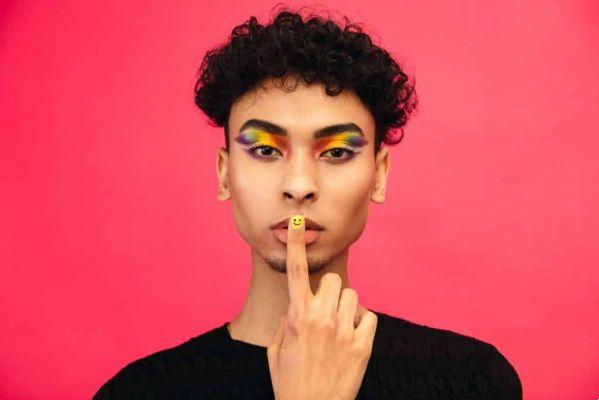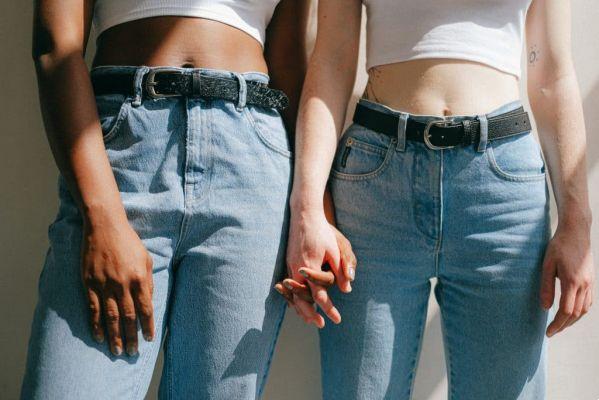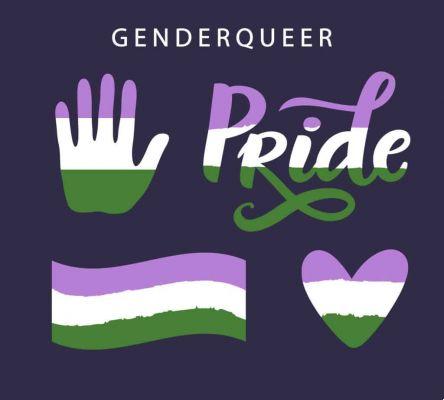If you follow, even if “from a distance”, the LGBTQIA+ movement, you noticed that this acronym, which was previously just LGBT, gained new letters, with the aim of including more diversity and other types of manifestation of gender and sexual orientation. One of these more recently added definitions is the word “queer”.
But what does “queer” mean and what is a queer person? We have prepared an article to resolve all your doubts and clarify once and for all what the meaning of this term is!
What does queer mean?
The word “queer” is from the English language and, in its literal translation, means something like “weird”, “eccentric”, “strange” or “quirky”. This is not a new expression in the English language, as it has been used for at least 600 years, according to language scholars.
The “novelty” is that this word began to be used, since the mid-1920s, to refer in a pejorative way to homosexual people, as we have in Portuguese terms offensive to gays and lesbians, such as “bicha”, “faggot” , “boiola” or “dyke”, which more recently were appropriated by the LGBTQIA+ themselves to deconstruct prejudice, but which for a long time were offenses to homosexuals.

Researchers on LGBTQIA+ topics claim that, despite having “glued” more on gay people, the word “queer” was used to offend anyone who was not heterosexual and cisgender (a person who identifies with the same gender as their sex). So transsexuals, bisexuals, transvestites, drag queens, asexuals, among many other possibilities, were offended by the use of “queer”.
Appropriation of the word “queer”
It can be a little difficult to understand the use of the term “queer” and its offensive meaning, since it is typical of the English language and is not part of everyday Spanish. In a comparison for illustrative purposes only, it is like the American expression “nigga”, used at the time of slavery, in the United States, to refer in a pejorative way to enslaved blacks.
For a long time, both words were offensive – “queer” for homosexuals; “nigga” for black people. But these days they are being subverted and used by these people as a way to end the offense and show pride in who they are. Do you know when, in school days, someone was given an offensive nickname and, instead of being offended, got into the joke (in bad taste, by the way) and assumed that nickname, with the aim of making the joke boring? It's like that.
Today, therefore, people who are not heterosexual and/or cisgender use this term proudly to refer to themselves, rather than taking it as an offense. A good example of this is the name of the collective Queer Nation, an important association that fights for rights for LGBTQIA+ people around the world.
Queer theory
For many years, any manifestation of sexuality or gender identity that did not involve heterosexuality and cisgenderism was considered queer, that is, something strange, since the “normal”, supposedly, was to be heterosexual and to follow the gender assigned to the person at birth. .

It is important to note that, until the 1990s, homosexuality (at the time, often referred to as “homosexuality”, as a disease) was considered by many people to be a pathology, including by federal psychology councils and even by the World Health Organization ( WHO), which only removed it from its list of diseases in 1990 (!).
And this happened under pressure from the LGBTQIA+ movements of the time. It was in that decade and at the end of the last decade, between 1980 and 1990, that what became known as Queer Theory emerged, a movement of groups, thinkers and scientists who began to study definitions and trends of LGBTQIA+ groups, expanding knowledge on this topic. and demystifying many of the prejudices that existed at the time.
Is queer a genre?
Roughly speaking, it is not, but it has been used informally to define a type of gender identity known as genderfluid or genderqueer. People who call themselves so choose this word to refer to a gender identity that is not defined and exact. That is why the use of the word “fluid”, that is, someone who does not consider themselves 100% male or 100% female, “transiting” between these definitions, which can also be called transgender. Both “transgender” and “non-binary” are “umbrella terms” that represent a myriad of different types of gender identity that diverge from traditional definitions of male and female gender.
There's even a flag created by people from the queer movement. She has three bands, each with a color: lavender, which refers to androgynous people; white, in reference to agender people; and green, which represents people of non-binary genders — that is, who are not completely comfortable with traditional definitions of masculine or feminine gender, such as the aforementioned cases of genderfluid, pangender, etc.

There is also a flag used for and by people who consider themselves non-binary, created by Kye Rowan, a young LGBTQIA+ activist. The flag has four equally sized horizontal stripes, each with a color: yellow, in reference to those outside the binary concept of gender; white, for people who are of many genders; purple, as a reference to the fluidity and diversity of gender experiences; and black, in reference to agender people.
eternal deconstruction
As you can see, the definition of “queer” is relatively recent, having been constructed for “only” 40 years. And most importantly, when the topic is LGBTQIA+, it is to keep in mind that this subject has been more explored precisely in the last four decades. So changes in terms and definitions are quite common.
This is what Professor Leandro Colling, a researcher in Queer Studies at the Federal University of Bahia (UFBA), explained in an interview with IG's Queer portal: “Our ways of dealing with sexuality and gender vary over time. 15 years ago, we academics, and also many trans people, said that trans, transvestites and transsexual identities were variations of homosexuality. Today the social movement understands that trans identities are variations of cisgender identities”.
You may also like
- Everything you need to know about asexuals
- What is a transgender person?
- Check out the genderless baby clothing line!
- Why are people against homosexual relationships?
- You are so much more than a body
Because it is a fluid term, without such an exact definition, therefore, “queer” has been used as an “umbrella” for people who express their sexuality or gender in a less exact way.
What's up? What do you think about the use of the word “queer”? It is important to note that, regardless of labels, the essential thing is for a person to live their sexuality and their definition of gender to the full, rather than caring about this or that expression, unless, of course, they are concerned about set yourself. Live the fullness of your sexuality!

























